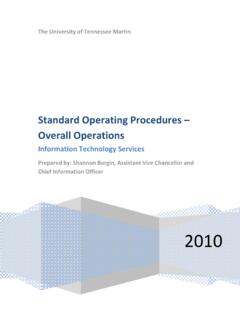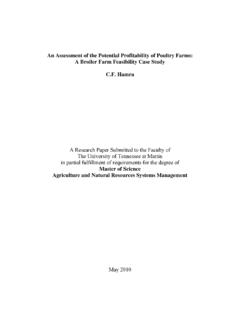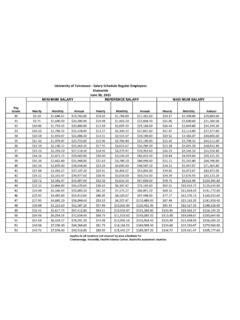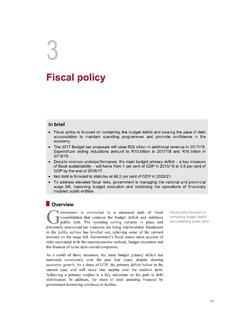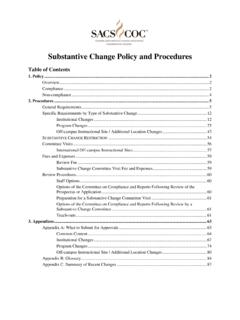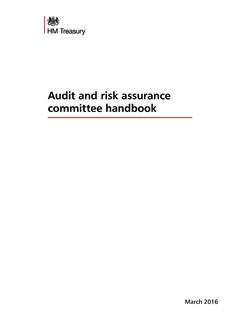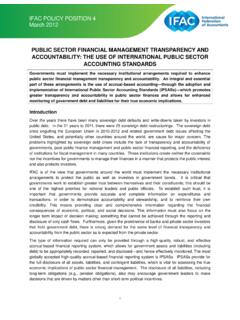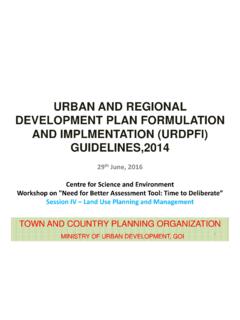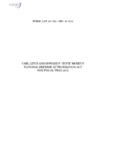Transcription of Standard Operating Procedures Operations
1 The University of Tennessee Martin 2010 Standard Operating Procedures Overall Operations Information Technology Services Prepared by: Shannon Burgin, Assistant Vice Chancellor and Chief Information Officer Standard Operating Procedures Overall Operations Information Technology Services 2010 Table of Contents Overview _____ 3 UT Policies and Best Practices _____ 4 Mission, Goals, and Organizational Chart _____ 5 governance _____ 6 Strategic and Budget Planning Procedures _____ 9 Student Conduct in Student Computing Labs _____ 10 General Access Student Lab Reservation Procedure _____ 11 Microcomputer Purchase policy and Procedure _____ 12 Faculty Computer Rotation General Procedures _____ 15 Procedures for Determining Technology Fee Expenditures _____ 17 Guidelines for Recycling Computers Purchased with the Technology Fee or with the Faculty Computer Rotation Funds _____ 19 Statement for Technology Purchased with Grant Dollars _____ 21 Procedure for Determining Salary Recommendations _____ 22 Procedures for Hiring new IT employees _____ 23 Procedure for Reviewing Contracts Containing Technology Components _____ 24 Allocation of User Accounts Procedure _____ 25 Security Incident Response Procedure _____ 26 Standard Operating Procedures Overall Operations Information Technology Services 2010 Page 3 of 32 Overview The Information Technology Services
2 Web site contains a significant amount of public information about our organization and services. Please refer to The Office of Information Technology Services is composed of 9 organizational units: 1. Application Development, Banner, Portal, and Imaging Administration, and Operations 2. Systems Administration and Server Infrastructure, Academic Computing, Security, and Video Network 3. Network Administration and Infrastructure, Telephone Services, Cable TV 4. Instructional Technology and Web Services 5. Technical Service Field Support, Classroom Technology, Multifunction Devices and Imaging 6. Helpdesk 7. Computer Store and Digital Printing Services 8. Budgets and Office Management 9. Planning and Leadership Each organizational unit maintains its own Standard Operating Procedures as appropriate. A copy for each unit is stored in the shared folder under Computer Services Policies 2010 Standard Operating Procedure. This document contains the Standard Operating Procedures for the general ITS operation including Planning and Leadership.
3 The Office of Information Technology Services abides by all federal, state, and University of Tennessee policies. Standard Operating Procedures Overall Operations Information Technology Services 2010 Page 4 of 32 UT Policies and Best Practices All UT Policies ,34235&_dad=portal&_schema=PORTAL UT System Policies and Best Practices Security Policies and Best Practices: UT Acceptable Use of Information Technology Resources UT Martin abides by the UT System Acceptable Use policy listed below: ,140536&_dad=portal&_schema=PORTAL&p_pol icy=IT0110 Standard Operating Procedures Overall Operations Information Technology Services 2010 Page 5 of 32 Mission, Goals, and Organizational Chart Information Technology Services Mission Statement See Information Technology Services About Us The Office of Information Technology Services provides high-quality information technology and communications resources and services through shared resources, common infrastructure and functions in support of the academic and administrative activities of the University of Tennessee at Martin.
4 This office provides centralized services in the areas of academic computing; server administration; administrative computing; application development; training and faculty development; technology consulting; information and network security; data, voice, and video networks; computer installation, upgrades, service, and support; helpdesk support for faculty, staff, and students on and off campus; computer hardware, software, and accessory configuration and acquisition; cable TV; telephone technical services; multifunction convenience copiers, printers, and scanners installation, configuration, and repair; digital printing services; and discounted prices for students on computer hardware, software, and supplies. These services are in place to provide a flexible infrastructure to meet the rapidly changing needs for instruction, all types of learning, research, and administrative functions. Information Technology Services General Goals See Information Technology Services Home Page Keep UT Martin at the forefront of technology and communications Provide excellent services Make a difference in the way on-campus and distance education students learn Positively and proactively respond to change Provide a stable, reliable, state-of-the-art technology infrastructure Information Technology Services Organizational Chart See and click the latest Organization chart document Information Technology Services About Us Organization Chart Standard Operating Procedures Overall Operations Information Technology Services 2010 Page 6 of 32 governance Standard Operating Procedures Overall Operations Information Technology Services 2010 Page 7 of 32 ITS Advisory committees Computer Priorities Committee: The Computer Priorities Committee is responsible for the establishment of administrative computing priorities for the campus.
5 These include, but are not limited to, major software purchases and development projects, maintenance projects, and approval to modify to baseline software packages. All members are ex-officio. This committee meets on an as needed basis. Academic Council: The Academic Council provides a platform for Information Technology Services to information the members of its activities. The members of the Academic Council provide advice with regard to academic computing priorities and to changes and enhancements to the student information system. All members are ex officio members. The council meets on a monthly basis. Microcomputer Committee: The members of this committee represent faculty and administrative staff. This committee reports to the Chief Information Officer, and has the responsibility of recommending annually an approved list of microcomputer equipment for which full campus support will be provided, and of determining necessary exceptions to the approved list. The committee is chaired by the manager of Technical Field Support Services unit and includes representatives from the Vice Chancellor areas.
6 Academic Computing Advisory Committee: The committee meets at least once during each academic year to discuss academic computing priorities and makes recommendations, to the Vice Chancellor. The committee reviews the Technology Fee budget and allocates funds for the academic unit special technology projects from the Technology Fee. Two faculty representatives from each college are appointed by the Vice Chancellor of Academic Affairs to serve 2 year terms. The Director of the Library and the Director of Extended Campus and Online Services serve as ex-officio members. The Chief Information Office serves as an ex-officio member and chairs the committee. Committee information is communicated to the Chancellor s Staff, Deans and Department Chairs, the Academic Council, the Faculty Senate, and the Student Government Association. The Bannerteam: The Bannerteam was established as part of the original installation of the Banner Student Information System. It continues to meet to disseminate information about changes between offices who utilize Banner.
7 Because of the tight integration, changes in Procedures and data in one office impact other offices. Communication and information is key. ITS provides members of the Bannerteam with project status updates. The Bannerteam assists in setting priorities. Open discussions about needs create synergy Standard Operating Procedures Overall Operations Information Technology Services 2010 Page 8 of 32 and develop best practices that can lead to solutions and benefits for multiple areas. The Bannerteam meets on a monthly basis. Standard Operating Procedures Overall Operations Information Technology Services 2010 Page 9 of 32 Strategic and Budget Planning Procedures The planning process serves to align all technology plans with the missions of the university and the Martin campus and its extensions. Information for creating technology plans is derived from many sources including the Academic Council, SGA, meetings with academic departments, one on one meeting, surveys, RFP s, external resources such as Educause, SungardHE, Dell, government publications, and other campuses.
8 The Information Technology Services Leadership Team meets on a weekly basis to discuss current and future projects and resource needs. The ITS Leadership Team consist of the Directors and Managers of the 8 units of IT and the CIO. During the weekly IT Leadership Team meetings the IT Leadership analyzes the current activities of the various departments in Information Technology Services and decides what actions need to be taken place in order ensure that work is being done correctly and in efficient and effective manner. Good communication between departments is enhanced, ideas are presented for improvement, information is shared, and essential planning takes place. Information from the Leadership Team meetings and the Strategic Plan are used to develop the yearly budget planning material and to project future needs for the next 3-5 years. Strategic plans are continually reviewed for completion and relevance. Information Technology Services Strategic plans are integrated into the UT Martin Strategic plans on a yearly basis.
9 Strategic plans and updates are submitted to the Vice Chancellor for Academic Affairs Planning unit on a yearly basis. Budget Plans are submitted and presented to the Budgeting Planning committee on a yearly basis. ITS also maintains a 5 year Technology Master Plan that feeds into the Strategic and Budget plans. ITS updates the Vital Statistics each fall to provide metrics related to services providing and changes being made. The Vital Statistics, as well as other planning reports, are located on the ITS website About Us. Information Technology Services staff meetings are held on the 2nd Friday of each month. During staff meetings the CIO presents information relative to the time period, such as planning for Performance Reviews, an overview of the Strategic Plans for the campus and Information Technology Services, Information Technology Services Budget Plans, policies and Procedures , other employee development programs, and team building exercises. Staff members are encouraged to share information about current and future projects and resource needs.
10 Standard Operating Procedures Overall Operations Information Technology Services 2010 Page 10 of 32 Student Conduct in Student Computing Labs The standards of conduct described in the Student Handbook and the Acceptable Use of Technology Resources policy (UT fiscal policy IT0110) must be followed at all times. No conduct which interferes with the work of others in the laboratories is allowed. This includes excessive talking or talking in an unusually loud manner or otherwise making loud noise. Without prior authorization, software or data files shall not be placed on any fileserver, hard disk, or other University-owned storage medium. Laws of the United States and the State of Tennessee must be observed fully. This includes copyright laws as well as laws regarding unauthorized use or modification of computer programs and data stored on computer systems. Students working on projects related to academic achievement take priority over students using computers for social and entertainment purposes.
